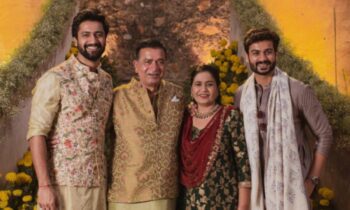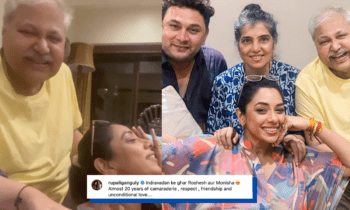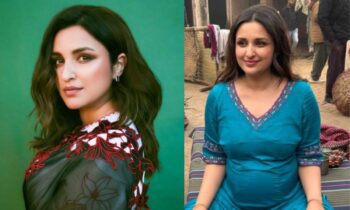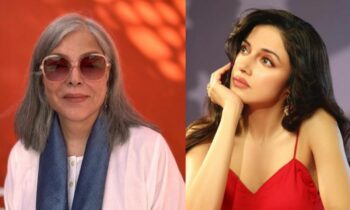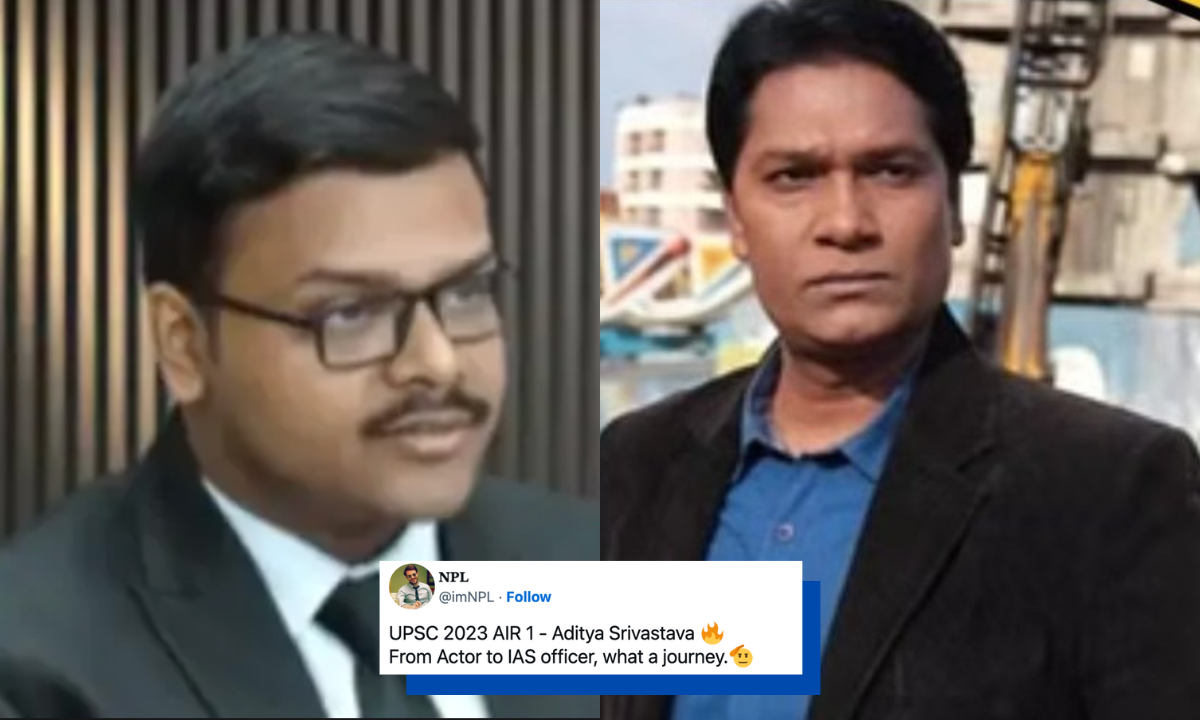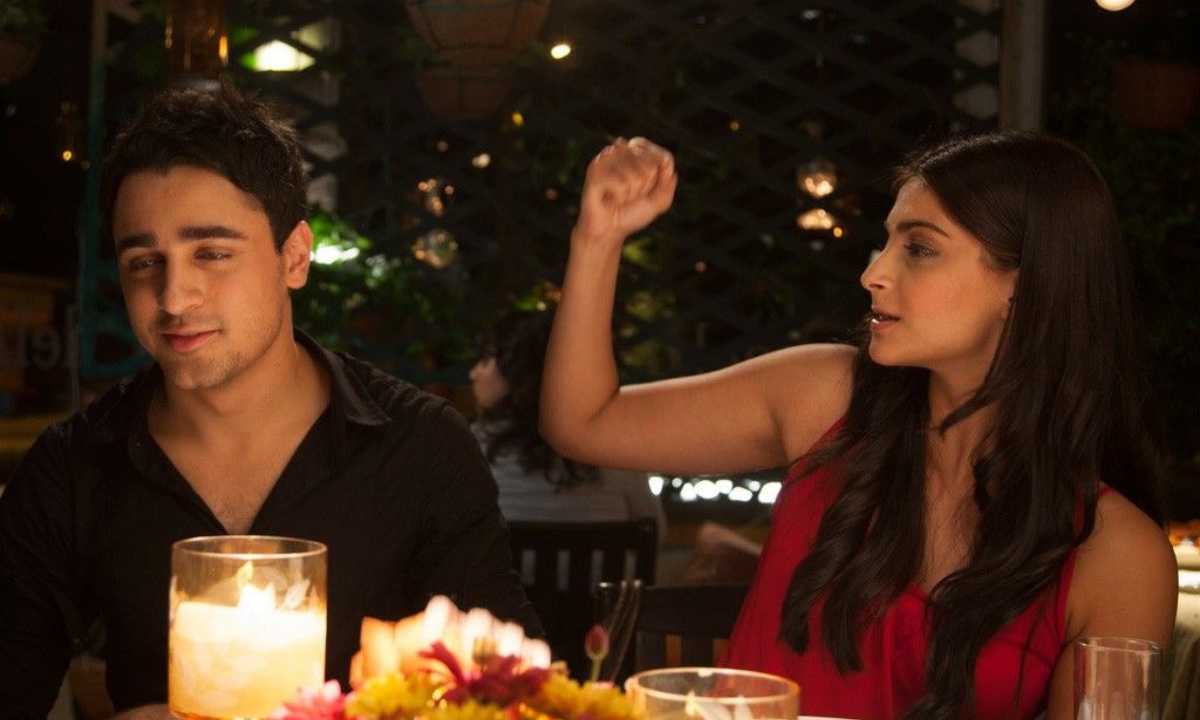The Empire Review: Wins Small Battles, If Not The War. Full Marks For Ambition, Scale And Shabana Azmi
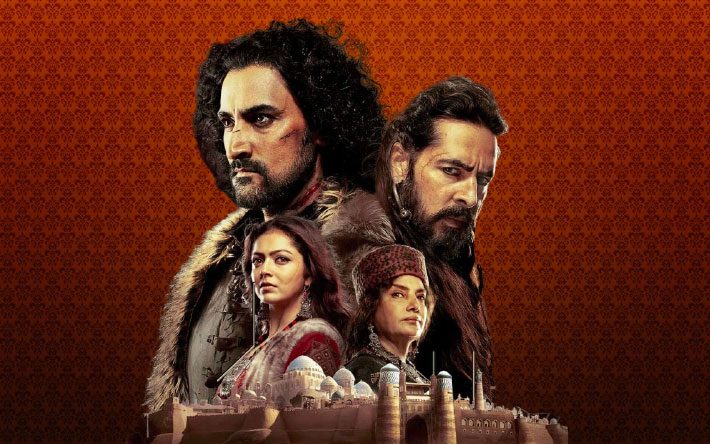
Despite Season 8, you’ll find me a vociferous defender of Game Of Thrones because its impact on the psyche of an entire generation of TV viewers, and the kind of complex, layered character work that it masterfully presented with visual storytelling is one for the books. Even if David Benioff and D.B. Weiss might’ve shit the bed with it in the end. Back home, while we’ve had many iterations of historical fiction on our television, Sanjay Leela Bhansali is an undisputed champion of the genre. And swaying somewhere in the vicinity (but not close enough) of our lofty Game Of Thrones-level storytelling expectations and Bhansali’s splendour and finesse is the scale and ambition of The Empire. The new series premiering on Disney+Hotstar is adapted from the first book—Raiders from the North—of a six-part historical fiction series about the Mughal dynasty starting with Babur, The Empire, by Alex Rutherford (collective pen name for writer couple Diana and Michael Preston). Directed by Mitakshara Kumar, the series stars Kunal Kapoor, Shabana Azmi, Drashti Dhami, Dino Morea, Rahul Dev, Aditya Seal, Sahher Bambba, Toranj Kavyon, and Imaad Shah amongst others.
The Empire is adapted for screen by writers Bhavani Iyer and A.M. Turaz (who also writes the lyrics) along with director Mitakshara Kumar. The music is by Shail Hada, and background score by Ashutosh Phatak. Nigam Bomzan and Yiannis Manolopoulos are the directors of photography; the editing is by Atanu Mukherjee and Sagar Manik, production design is by Priya Suhas and the costume design is by Sheetal Sharma and Chandrakant Sonawane. The Empire is produced by Emmay Entertainment.
View this post on Instagram
What’s The Empire about?
The Empire, I am assuming from its source material, has plans to tell the story of the rise and fall of the Mughal Dynasty, with Season 1 tackling the chapters of the Timurid emperor Babur (Kunal Kapoor), who brought the Mughal rule across the Hindu-Kush to India. The series, though built on historical facts and some very real historical people, is a dramatised exploration of the more intimate aspects of Babur’s life that you might not get from history textbooks. It begins with an older Babur, immersed in self-doubt and on the brink of admitting defeat at the First Battle of Panipat against Ibrahim Lodi. It then goes into flashback, as Babur retrospects on his life, to a young barely a teenager Babur, struggling to ascent to the throne of Ferghana (currently in Uzbekistan) in the wake of his father, Umar Shaikh Mirza’s untimely demise.
Standing by him are his sister, the shrewd and fearless Khanzada (Drashti Dhami), his formidable, spike-tongued maternal grandmother, Aisan Daulat Begum (Shabana Azmi), and his loyal commander of army, Wazir Khan (Rahul Dev), practically a father figure. There’s also his on and off best friend, Qasim (Imaad Shah), who loves Babur with an intensity that cannot be returned. Standing against Babur, for the most part, is the Shaybanid leader Shaybani Khan (Dino Morea), with whom he ends up playing a sort of musical chairs around the thrones of three kingdoms—Ferghana, Samarkand and Kabul.
For the most part of his life. Babur was either a king in exile from his rightful kingdom because he was too ‘soft-hearted’ to the pay the price to get it back. Or he was holding down a temporary kingdom in name, while he fought to amass armies to further his agenda of taking back what is his. All of it makes his story, and those of the people around him, a juicy one to explore, with themes of politics, power, personal turmoil, the constant choosing between peace and war, the fragility of human existence, and the search for a sense of belonging. The Empire also has a host of female characters—strong women who wielded silent power, and were kingmakers (and breakers) in their own right—with stories that deserve a deep-dive.
History tells us, that when Babur finally realised his and his deceased father’s dream of conquering India, his personal reign was rather short-lived. What he did do though, was establish the Mughal Dynasty in India that went on for centuries after. And that’s pretty much what you get from The Empire Season 1. A quick foundation course for a richer history lesson to come. Hopefully.
The Empire is decently engaging and gets full marks for its ambition, scale and costumes
The Empire Season 1 runs for eight episodes, and is decently engaging. Historical fiction + politics is an irresistible combination after all. I do have an issue with the pacing but we’ll come to that later.
The sets and the scale on which The Empire is mounted are where Mitakshara Kumar’s graduation from the Bhansali school of filmmaking really shines through. This is one of the most expensive series to come out of India. She ought to be proud of herself and her team. And he ought to be proud of her too. I kinda get riled up about the fact that from a country that gets outsourced tech gigs, our VFX is never as bold, imaginative and competent. I do have a few complaints where the effects made me cringe, like the top shots of the castles or the mountainous backdrops visible from castle parapets. I also wished that the outdoor shots and the town sets were a tad more imaginative and descriptive of the different kingdoms they belonged to. There was one particular sequence in the dark where I couldn’t see anything, and trust me, I changed two screens to make sure it wasn’t my problem.
However, there were some particularly magnificent shots, like the one involving Shaibani, Khanzada, white snow and a red fabric that is something I will forever associate with The Empire now. Let’s just put it, that I love the palace scenes in Samarkand (which is the only one that feels distinct than the others TBH because of its striking use of blue) and the scenes involving snow. I also liked the costumes, particularly the ones donned by Dino Morea and Drashti Dhami. The songs composed by Shail Hada are a worthy complement to the story.
View this post on Instagram
The Empire has enough similarities to make Game of Thrones and Bhansali comparisons inevitable
I remember sitting through The Empire press conference, where I heard two things of note. First, and one that got me excited, was that the director was a woman. Mitakshara Kumar’s filmography boasts of associate director credits on movies like Bajirao Mastani and Padmaavat. I instantly expected Bhansali levels of grandeur and drama. But there was also a curiosity about the female gaze. It’s like imagining, what if a woman were to helm Game of Thrones? Would the violence be depicted differently? Would there be more emphasis on intricate emotion that is more show than tell?
The second was a rather telling one. Kumar noted how the trailer got everyone asking her about the similarities to Game Of Thrones. And she replied saying she had’t watched it before The Empire was done shooting. And yet, there are some scenes and characters that so aggressively remind you of GoT, Bajirao and Padmaavat that you can’t help but let the comparisons ride out.
It would be overkill at this point to state just how much Dino Morea’s Shaibani Khan is a cross between Ranveer Singh’s Khilji from Padmaavat and Khal Drogo from GoT, or the dynamic between the ‘barbaric’ Shaibani and the princess Khanzada has tinges of Khal Drogo and Daenerys Targaryen’s early relationship. In one scene, we see Shaibani skinning a dead animal, there’s no way you’re not thinking of one of the most iconic Game of Thrones scenes where Tywin Lannister talks to his son, Jaime while doing a similar task. In another scene, Shaibani’s antics with a gold crown will remind you of the horrific death that Khal Drogo gives to his wife’s brother, the throne-hungry Viserys Targaryen.
The similarities don’t just end there, perhaps. And not all comparisons are negative. Shabana Azmi as Aisan Daulat is the crown jewel of this series for me, and she reminds one of the very popular Olenna Tyrell, aka the Queen of Thorns from GoT, particularly with her clever machinations, fierce loyalty to her family, and her stingy tongue. But it isn’t too overpowering to take away from her efforts to make the character something beyond what it was on paper.
Also Read: Here’s Why Marvel’s Eternals, Directed By Chloé Zhao, Is A Pretty Big Deal For Women In Comic Book Movies
Where the similarities end, the problems begin
One of the best things about serialised telling of historical fiction is that you can take your time to build your characters. Unfortunately, The Empire employs too many substantial time jumps, and ends up sacrificing all possible opportunities for character building in the process. We see Babur’s descent into debauchery after being exiled, but it’s a hazy montage, telling us nothing of he or the people around him are going through every day. One minute, Babur is all set to make a move on Kabul. And the next minute, he is father to grown up children, who are helping him in his campaign to conquer Hindustan! See what I mean? Half decades have passed between two incidents, and yet we know nothing of what has happened to these characters, how they’ve changed, evolved, stayed the same, or struggled. So why would I care which son of Babur—Humayun (Aditya Seal) or Kamran Mirza gets the throne, like I did about which Stark gets to sit on the Iron Throne?
You know only what you see the characters emote on screen, and nothing of what’s going on inside their complex minds, rendering them these one-dimensional figures with singular motivations. Again, what fuels these motivations and what happens before they reach endgame is another lost opportunity for storytelling.
This also reduces most of the characters and themes into clichés. The scheming wazir, the jealous queen mother plotting a coup to secure her son’s future on the throne, the clearly defined Good Muslim and the Bad Muslim trope, the loyal family member who ends up betraying, and so on. We know what they’re doing, and perhaps the superficial reasons for why they’re doing it. But then that one thing becomes their entire character, and there’s absolutely nothing else that makes them worth investing in emotionally. The characters in the show are all in relation to Babur. But what about their relationships to each other, and to other people? Does the loyal soldier not have any friend outside his work? Does the queen not have a sexual desires? Does the insecure wife not have a backstory that made her so? Does the king not have internal conflict about right and wrong?
Remember when this happened on Game Of Thrones? When time jumps felt random and characters simply did things that left you frustrated because it felt uncharacteristic or because their character arc wasn’t ripe enough to make them behave like that? For GoT, that happened much later and we all know how that went. For The Empire, it happens in its first season itself, which is both bad, because first impression, and good, because it can learn from its mistakes with retrospection, like Babur did from his.
And at the cost of being labelled sexist, this is detrimental to female characters more than male. The men have enough to do here, physically. But the women are chess players here. And therefore, once they make their move, they are relegated to the backdrop, with nothing more to do except offer occasion shrewd advice, concern or plotting. Khanzada, for example, is shown as a skilled warrior. But she wields a sword once, and then nothing comes of it. She’s tortured and abused by Shaibani, and yet, the only scars we see are overt. Concerned, plotting and shrewd are literally the only three attributes these women have. So sure, these are powerful women, who could make or break kingdoms. But they’re mere cardboard figures in pop-up history textbooks.
View this post on Instagram
I’d like to think the biggest reason for this shortcoming could be what shows mounted on this scale often face: not enough time and money to tell all the important stories. The Empire seems to go for a more rounded telling of Babur’s life story, jumping from one select life event to another. In the process, some very crucial elements of Babur’s life, like the numerous consorts he had, the writing of his king’s memoirs—the Baburnama, and the battle with Mewar King Rana Sangha, have been skipped. I am not sure if a different selection plots and subplots would’ve done better, because ultimately it is all about how you’re telling the story and allowing your characters to develop that matters.
What is also notably absent are any mentions of religion, with clear attempts to avoid criticism by having nothing that might court controversy. Alas, made in India also applies to creating offences and hurt sentiments out of thin air. So there’s already a boycott trend and a ban request, and I think a legal compliant filed too?
Performances
Shabana Azmi does it for me. That being said, I think these kind of roles are an easy Tuesday afternoon for actors of her prowess. Not taking away from the efforts she has put in, but I do wish we’d gotten to see more shades of her character. And I was really hoping for a powerful ‘Tell Cersei it was me’ moment for her, which never came. The second character that I was truly experiencing conflicting emotions for was Dino Morea. True, his characters has many shades of fan favourite characters that are hard to separate. But I think Morea does a fine job with what material has been given to him, getting the swagger and demeanour right. Another worthy mention is Rahul Dev as the loyal Wazir Khan.
Kunal Kapoor and Drashti Dhami are… decent, perhaps from their own limitations as actors or the script’s. I expected more. But at least they’re better than some of the other actors whose accents and demeanours seem so out of time and place! And surprisingly, one of them is Imaad Shah, who sounds more like Babur’s bro than his ‘azeez dost’. I usually am delighted to find him pop up in these unique characters, but this one felt like an odd misfit.
Verdict
The Empire is audacious, I’ll give it that. And I am someone who will always tip my hat to ambition. It gets the ball rolling, even if it doesn’t get it to the desired destination. Mitakshara Kumar and Co. have managed to put up a spectacle that deserves to be applauded for its scale and the visible efforts of mounting such a production. Their source material is interesting too, and risky to be explored right now considering the politics of it all. And I think their effort is a commendable one that can be start of India’s learning curve to making better historical fiction adaptations in serialises format, which so far filmmakers like Bhansali and Rajamouli (Baahubali) have managed to pull off spectacularly in film.
The Empire ends up winning some battles and losing some, the latter on the fronts of writing, character development, special effects and performances. That being said, I still think it deserves a watch, and consequent seasons, because the story only gets more and complex and richer from here. As I mentioned before, Babur only laid the foundations of the Mughal dynasty in India. There’s a lot more worth exploring here, in terms of political, religious, and emotional conflicts, and as a history buff, it excites me with all the possibilities, albeit there’s more nuance than we saw with this first season and improvement on all its shortcomings.
The Empire is currently streaming on Disney+Hotstar.
Paurashpur Review: Oh The Irony Of Sleazy, Soft Porn In A Show About Smashing Patriarchy!





